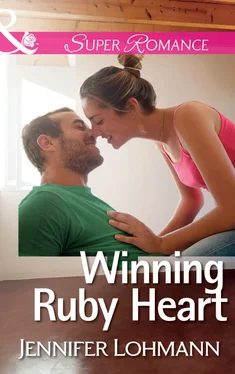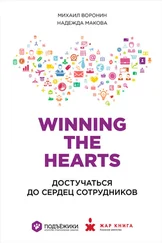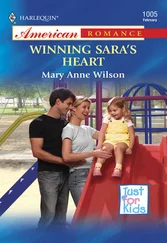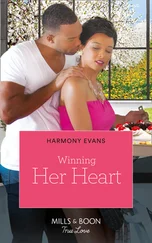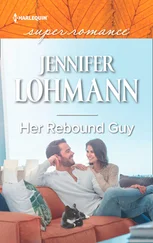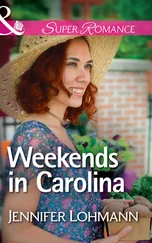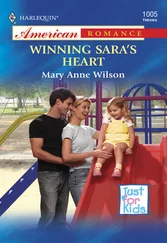He smiled at the runner and, even though she knew better, Ruby leaned forward, pulled into Micah’s magnetic orb. “Could you tell us a little about how your art affects your running? Or your running affects your art?” After seeing him in a thousand interviews, Micah’s shallow dimples remained a surprise in an otherwise stern face and clearly disarmed the last of Currito’s natural reserve. Ruby sympathized with the runner; she, too, had fallen victim to those dimples, thinking they offered sympathy when they were simply a weakness in the muscles of the cheek.
“Oh, yeah, man. Painting is what I think about while running. The pain, it takes on colors and strokes.”
Ruby almost didn’t hear the knock on the hotel room door over the runner describing an injury and the painting that had resulted from it. The shuffle of her bare feet was silent on the carpet. Through the peephole she only saw the door of the hotel room across the hall and the thick fingers of a man’s hand, distorted by the glass. She was debating ignoring the prank when she heard, “Ruby Heart, I know it’s you.” It was Micah.
Her shoulders fell, causing a ripple of soreness through her body. I almost got away with it. The story of her life.
Before she opened the door, she closed her eyes for a moment and tried to pull her muscles together around her heart. She was allowed to run in non-Olympic competitions again. They hadn’t banned her for life from all sport. With as many defenses banded around her as possible, she twisted the lock, opened the door and looked down.
His eyes flickered over to the television, still playing his long interview with Currito. It was what Micah was known for—long, in-depth, personal interviews with sports figures who told those dimples all their secrets, forgetting they were being filmed. The National Sports Network’s Barbara Walters. He looked up at her, then rolled his wheelchair forward, and she had to step back or be run over.
“I’m sorry, but you have the wrong room.”
“Shut the door, Ruby.” He sounded exasperated, with a tinge of disgust. “I assume you don’t want people to realize who you are.” No disarming interview face for her. Instead, his mouth was pursed and his blue-gray eyes hidden in the shadows of the room’s poor lighting. That this was her hotel room with her sweaty running clothes on the bed didn’t matter; with his broad shoulders and expectant gaze, he commanded the room as he’d once commanded entire college football stadiums. The spell he’d cast over her through the television danced about on her skin, tempting her to dump all her secrets onto the floor for him to rummage through and find wanting.
The crunch of her teeth slamming together when she snapped her mouth closed reverberated through her head.
Ruby stood, her hand on the door handle, debating her options. Sadly, Micah was right. She would prefer him in her room to the entire hotel learning that Diana Heart was a poorly constructed alias for Ruby Heart. It was unlikely that anyone other than Micah cared who Ruby Heart was, but unlikely wasn’t the same thing as impossible. She shut the door and looked at the reporter who had forced her to look at the ugliness of herself.
You didn’t have your passion taken from you. You had someone shove your failure into your arm and then you pissed your dreams away. Five years later the scorn was as fresh as rotted meat. The sensation of being both mud on the bottom of someone’s shoe and the most fascinating thing in the world was as strange now as it had been back then.
The television flickered. Ruby stood by the door, watching Micah watch the end of his interview with Currito. The runner talked about joy, about blasting past personal limits and about purity. After a short mention of some special on ultra running, the interview cut to a commercial. Micah backed his wheelchair up to the bed, grabbed the remote and turned off the television. “Interesting man, Currito.” Micah rolled his r’s when he said the man’s name. He’d grown up in Arizona, she remembered, and had learned Spanish as a child. “He’s got a compelling background, the kind that makes for good interviews and inspires Americans to root for him. A fighting spirit—constantly pulling himself up with his bootstraps. And he still believes in the purity of the sport.”
Ruby heard the condemnation in what Micah left unsaid. Currito hadn’t grown up in an upper-middle-class suburb of Chicago. He hadn’t gotten a scholarship to the University of Illinois and he hadn’t had a mother standing behind him, providing for him, seeing to his every need so that all he had to think about was racing. Currito worked for a living; he raced for fun. And Currito hadn’t cheated.
“Yes. He’s a very nice man.” She didn’t need to be told what advantages she’d had and what gifts she’d thrown away. Micah may have been the first to explain this to her, but he hadn’t been the last. “Did you come here just to talk about Currito?”
“Why are you running?”
Because she’d seen the Christmas letter her mother had put together with glowing reports of her brother Josh’s engagement to the perfect Christine and her sister Roxanne’s appointment as editor of a top economics journal—“an honor at any age, but especially when she’s so young.” At the bottom of the letter had been that one sentence, “Ruby is doing well and still at home.” She’d read that one line over and over, wishing her mother had found something else to say about her youngest child. Then Ruby had realized she didn’t have anything else to say about her life, either.
She could continue to define herself by her sins or do something else.
But Micah’s velvet voice couldn’t fool her into any more confessions, so she said only, “It’s good exercise.” She’d had plenty of one-liners ready to tell a curious person if someone realized who she was, but none of them were appropriate for the man who’d barged into her hotel room. She hadn’t seen the cameraman, but that didn’t mean he wasn’t waiting around some corner. Cameras flashing. Microphones shoved in her face again. Her mom’s nerves sending her back to the hospital. And the never-ending stream of comments from people judging her. Not just her doping, which deserved judgment, but her hair and her lack of breasts and her thighs and the way she smiled.
Male athletes who slip and repent seemed to receive forgiveness from the American public fairly easily. Maybe it was her perspective, but Ruby had never seen a famous woman forgiven, only hounded.
In her irritated state, she couldn’t resist uttering her next statement. “It’s very meditative,” she said. “You should try it.”
Her parting shot hung in the air above Micah’s head. If she reached out, could she snatch the words back? No such luck.
He chuckled, which made her feel worse. “Running isn’t really the sport for me anymore, though you’re right, it was meditative. Wheelchair marathons serve a similar purpose for me now.”
“I’m sorry. That wasn’t, well...” She knew about his marathons. Four years ago, she’d been in Grant Park during the Chicago Marathon, pretending she was enjoying a day in the city. The wheelchair marathoners had flown by in a blur of wheels, helmets and arms. One in particular had caught her eye and she’d stood at the top of the bleachers to watch him speed to the finish.
The marathoner had been so full of movement, so alive, and she hadn’t been sure if the need that had filled her body had been desire for movement or desire for the man. Until he’d taken off his helmet and she’d realized the surge of lust had been for a man who hated her.
“It’s wasn’t a nice thing to say,” she finished lamely. It’s not a nice thing for you to be here, her fear whined in her head, but that was an excuse, and she had been done with excuses for five years.
Читать дальше
